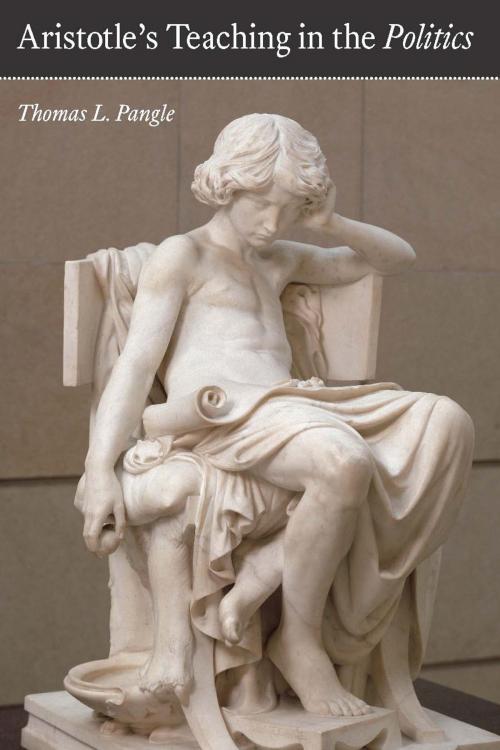Aristotle's Teaching in the "Politics"
Nonfiction, Religion & Spirituality, Philosophy, Political, Social & Cultural Studies, Political Science, Politics, History & Theory| Author: | Thomas L. Pangle | ISBN: | 9780226016177 |
| Publisher: | University of Chicago Press | Publication: | April 1, 2013 |
| Imprint: | University of Chicago Press | Language: | English |
| Author: | Thomas L. Pangle |
| ISBN: | 9780226016177 |
| Publisher: | University of Chicago Press |
| Publication: | April 1, 2013 |
| Imprint: | University of Chicago Press |
| Language: | English |
With Aristotle’s Teaching in the “Politics,” Thomas L. Pangle offers a masterly new interpretation of this classic philosophical work. It is widely believed that the Politics originated as a written record of a series of lectures given by Aristotle, and scholars have relied on that fact to explain seeming inconsistencies and instances of discontinuity throughout the text. Breaking from this tradition, Pangle makes the work’s origin his starting point, reconceiving the Politics as the pedagogical tool of a master teacher.
With the Politics, Pangle argues, Aristotle seeks to lead his students down a deliberately difficult path of critical thinking about civic republican life. He adopts a Socratic approach, encouraging his students—and readers—to become active participants in a dialogue. Seen from this perspective, features of the work that have perplexed previous commentators become perfectly comprehensible as artful devices of a didactic approach. Ultimately, Pangle’s close and careful analysis shows that to understand the Politics, one must first appreciate how Aristotle’s rhetorical strategy is inextricably entwined with the subject of his work.
With Aristotle’s Teaching in the “Politics,” Thomas L. Pangle offers a masterly new interpretation of this classic philosophical work. It is widely believed that the Politics originated as a written record of a series of lectures given by Aristotle, and scholars have relied on that fact to explain seeming inconsistencies and instances of discontinuity throughout the text. Breaking from this tradition, Pangle makes the work’s origin his starting point, reconceiving the Politics as the pedagogical tool of a master teacher.
With the Politics, Pangle argues, Aristotle seeks to lead his students down a deliberately difficult path of critical thinking about civic republican life. He adopts a Socratic approach, encouraging his students—and readers—to become active participants in a dialogue. Seen from this perspective, features of the work that have perplexed previous commentators become perfectly comprehensible as artful devices of a didactic approach. Ultimately, Pangle’s close and careful analysis shows that to understand the Politics, one must first appreciate how Aristotle’s rhetorical strategy is inextricably entwined with the subject of his work.















